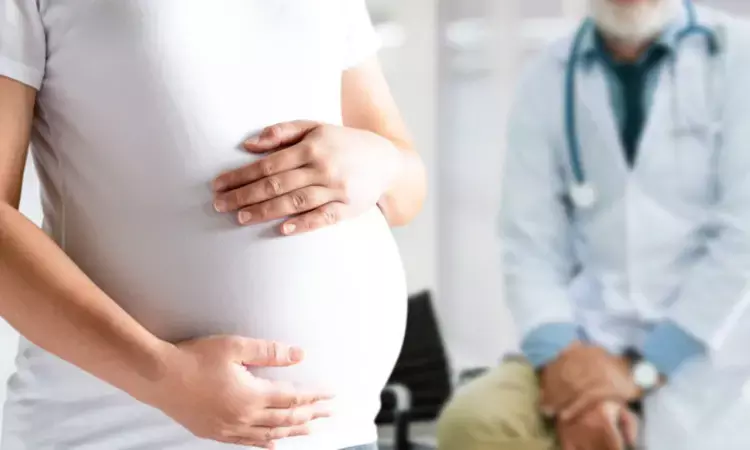- Home
- Medical news & Guidelines
- Anesthesiology
- Cardiology and CTVS
- Critical Care
- Dentistry
- Dermatology
- Diabetes and Endocrinology
- ENT
- Gastroenterology
- Medicine
- Nephrology
- Neurology
- Obstretics-Gynaecology
- Oncology
- Ophthalmology
- Orthopaedics
- Pediatrics-Neonatology
- Psychiatry
- Pulmonology
- Radiology
- Surgery
- Urology
- Laboratory Medicine
- Diet
- Nursing
- Paramedical
- Physiotherapy
- Health news
- Fact Check
- Bone Health Fact Check
- Brain Health Fact Check
- Cancer Related Fact Check
- Child Care Fact Check
- Dental and oral health fact check
- Diabetes and metabolic health fact check
- Diet and Nutrition Fact Check
- Eye and ENT Care Fact Check
- Fitness fact check
- Gut health fact check
- Heart health fact check
- Kidney health fact check
- Medical education fact check
- Men's health fact check
- Respiratory fact check
- Skin and hair care fact check
- Vaccine and Immunization fact check
- Women's health fact check
- AYUSH
- State News
- Andaman and Nicobar Islands
- Andhra Pradesh
- Arunachal Pradesh
- Assam
- Bihar
- Chandigarh
- Chattisgarh
- Dadra and Nagar Haveli
- Daman and Diu
- Delhi
- Goa
- Gujarat
- Haryana
- Himachal Pradesh
- Jammu & Kashmir
- Jharkhand
- Karnataka
- Kerala
- Ladakh
- Lakshadweep
- Madhya Pradesh
- Maharashtra
- Manipur
- Meghalaya
- Mizoram
- Nagaland
- Odisha
- Puducherry
- Punjab
- Rajasthan
- Sikkim
- Tamil Nadu
- Telangana
- Tripura
- Uttar Pradesh
- Uttrakhand
- West Bengal
- Medical Education
- Industry
Dysfunctional devices in women with bioprosthetic heart valves tied to adverse pregnancy outcomes: JACC

Canada: A retrospective study published in JACC (Journal of the American College of Cardiology) has shown the presence of structural valve dysfunction (SVD) in 27% of women with bioprosthetic valves (BPVs) at the first antenatal visit, which negatively affects pregnancy outcomes.
According to the authors, it is the first study on pregnancy outcomes in young women with bioprosthetic valves and structural valve dysfunction.
In women with normally functioning bioprosthetic valves, pregnancy outcomes are often good, but structural valve dysfunctions may negatively affect pregnancy outcomes, but this has not been studied well. Considering this, Barbara Wichert-Schmitt, University of Toronto, Toronto, Ontario, Canada, and colleagues aimed to investigate outcomes in pregnant women with bioprosthetic valves and their association with SVD.
For this purpose, the researchers prospectively collected pregnancy outcomes in women with BPVs. Also, they studied adverse fetal events. Adverse maternal cardiac events (CEs) included sustained arrhythmia, thromboembolism, cardiac death or arrest, and stroke. Logistic regression was utilized to examine determinants of adverse events.
The average participants' age was 31, and they were pregnant a mean of 6 years after valve implantation. Women with miscarriages at less than 20 weeks of gestation or termination of pregnancy were excluded.
The authors reported the following findings:
- The researchers included one hundred twenty-five pregnancies in women with BPVs, 73% with right-sided and 27% with left-sided BPV.
- SVD was shown to be present in 27% of the pregnancies (21% with right-sided BPVs versus 44% with left-sided BPVs).
- CEs occurred in 13% of pregnancies and were more common in women with SVD than those with normally functioning BPVs (26% vs 8%).
- In women with left-sided BPVs with SVD, CEs were more common compared to women with normally functioning BPVs (47% vs 5%) but not in women with right-sided BPVs (11% in those with SVD vs 8% in those without SVD).
- Left-sided SVD, maternal age >35 years, and a composite variable of "high-risk" features were predictors of CEs.
- Fetal events occurred in 28% of pregnancies.
In the cohort of young women with BPVs, SVD was shown to be present in 27% at the first antenatal visit and negatively impacted pregnancy outcomes. Specifically, SVD of left-sided BPVs was linked with more significant adverse consequences.
The researchers advocate for more data on information on percutaneous treatment during pregnancy and racially diverse populations and medical SVD management beyond six months postpartum.
"These data are informative for clinicians and women, useful in choosing a prosthetic valve and pregnancy management," Deirdre J. Mattina wrote in an accompanying editorial.
Reference:
The study, "Outcomes of Pregnancy in Women With Bioprosthetic Heart Valves With or Without Valve Dysfunction," was published in the Journal of the American College of Cardiology.
DOI: https://www.jacc.org/doi/10.1016/j.jacc.2022.09.019
Dr Kamal Kant Kohli-MBBS, DTCD- a chest specialist with more than 30 years of practice and a flair for writing clinical articles, Dr Kamal Kant Kohli joined Medical Dialogues as a Chief Editor of Medical News. Besides writing articles, as an editor, he proofreads and verifies all the medical content published on Medical Dialogues including those coming from journals, studies,medical conferences,guidelines etc. Email: drkohli@medicaldialogues.in. Contact no. 011-43720751


